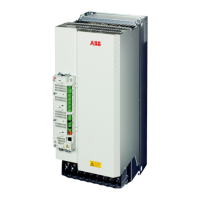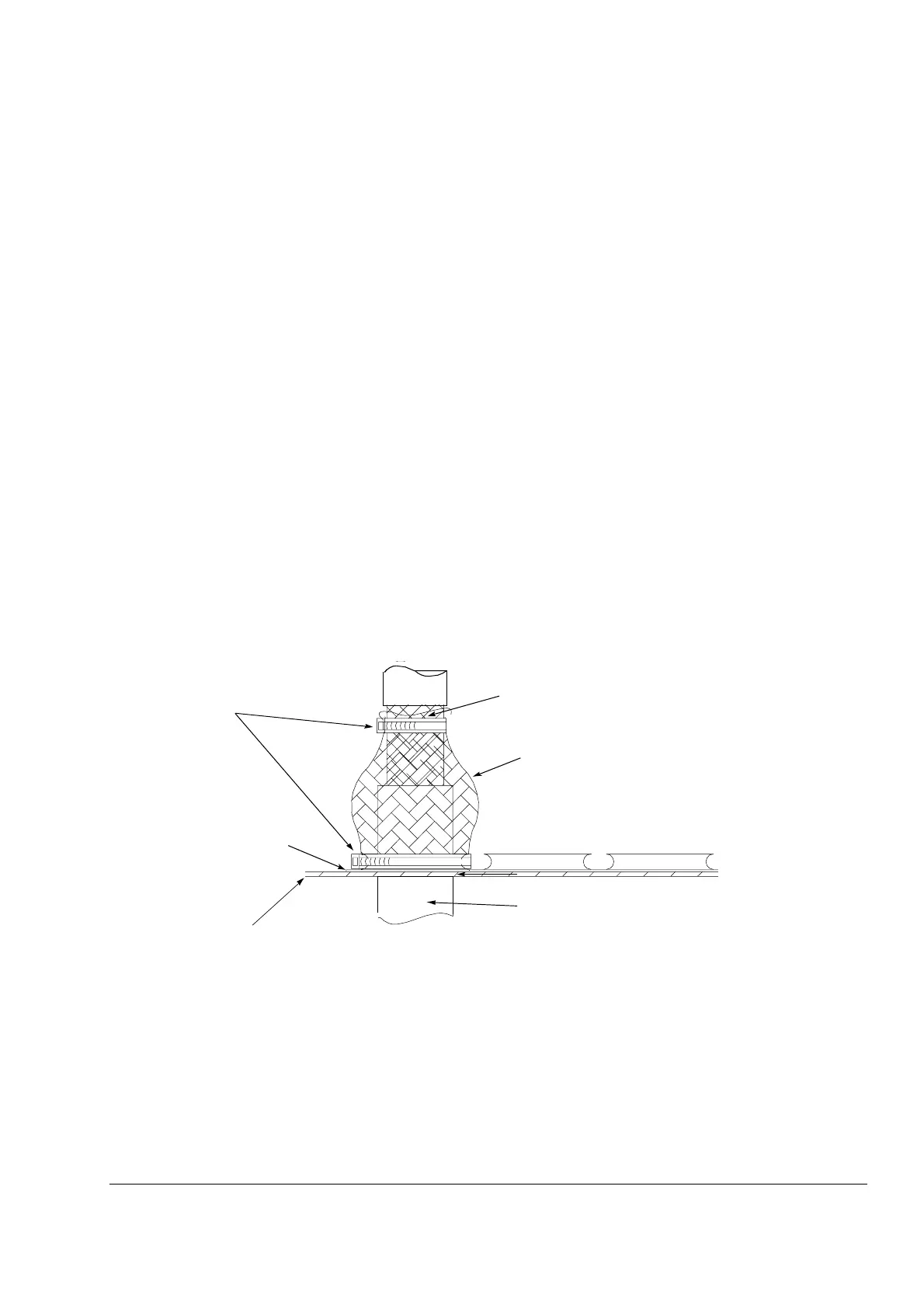Planning the cabinet assembly
27
EMC requirements
Generally, the fewer and smaller the holes in the cabinet, the better the interference
attenuation. The maximum recommended diameter of a hole in galvanic metal
contact in the covering cabinet structure is 100 mm. Special attention must be paid
to the cooling air inlet and outlet gratings.
The best galvanic connection between the steel panels is achieved by welding them
together as no holes are necessary. If welding is not possible, the seams between
the panels are recommended to be left unpainted and equipped with special
conductive EMC strips to provide adequate galvanic connection. Usually, reliable
strips are made of flexible silicon mass covered with a metal mesh. The non-
tightened touch-contact of the metal surfaces is not sufficient, so a conductive
gasket between the surfaces is required. The maximum recommended distance
between assembly screws is 100 mm.
Sufficient high-frequency grounding network must be constructed in the cabinet to
avoid voltage differences and forming of high-impedance radiator structures. A good
high-frequency grounding is made with short flat copper braids for low inductance.
One-point high-frequency grounding cannot be used due to the long distances inside
the cabinet.
First environment EMC compliance (defined under Compliance with the European
EMC Directive in the chapter Technical data) of the drive requires 360° high
frequency grounding of the motor cable shields at their entries. The grounding can
be implemented by a knitted wire mesh shielding as shown below.
Cable ties
Knitted wire mesh
Bare cable shield
Cabinet bottom plate
Lead-through plate
Cable

